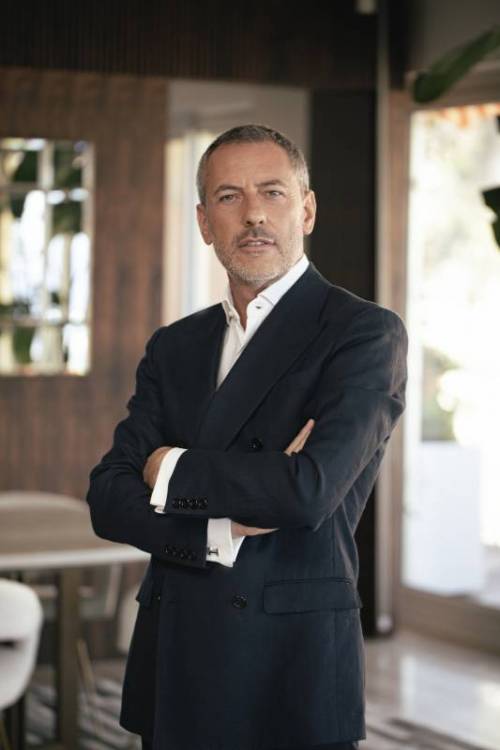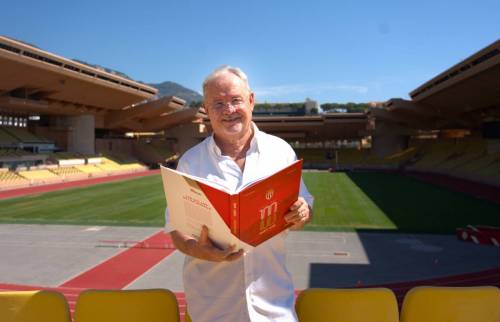The Environment
HSH Prince Albert II of Monaco gives insight into his early interest in the environment and explains the reasons for his ongoing commitment to the protection of the seas and oceans in a recent interview.
From Tuesday 6 through Friday 9 December Monaco hosted a preparatory meeting for the IPCC (Intergovernmental Panel on Climate Change) special report on the oceans and the cryosphere. The event was organised with the support of the Princely Government of Monaco, a sign of the keen involvement of Prince Albert II on environmental subjects.
The questions related to oceans and glaciers are the essential factors in the understanding of climate issues. Aside from IPCC’s sixth general report, whose three volumes will be presented in 2021 and 2022, three further special reports are being prepared. “We received 31 proposals for special reports”, explains paleo-climatologist Valérie Masson-Delmotte who is one of the Vice-Presidents of the working group, “and several of these proposals were linked to the two issues of oceans and glaciers.”
Throughout that week, approximately one hundred experts from 40 countries engaged in debates to decide the themes to prioritise. “We had to choose based on the changing needs of scientific understanding” continued the scientist, “on topics such as rising sea levels, melting glaciers, marine ecosystems, ocean acidification, fisheries resources, the global carbon cycle, or the consequences of the decline in sea ice”.
The proposals will in turn be submitted for approval in 2017. The final copy is expected in 2019 and it is a project that will be monitored very closely by Prince Albert of Monaco. He is among those who have continued to support this work to the very end, based on a theme which has interested him since the beginning.
Q: How did you become interested in the environment?
Prince ALBERT II of MONACO:
It’s clearly based on interests of my father and great-great grandfather Albert I who created the Oceanographic Museum of Monaco (in 1910). But the key moment came at the Rio Summit in 1992. At that time, no one had yet raised the alarm. My trip to the North Pole in 2006 cemented my commitment. One imagines a place that is unwelcoming, rugged and ruthless, but it’s a highly fragile ecosystem that is taking a battering due to global warming.
As children, you had a poster in your room…
In the early 1970s, my father had given all three of us a poster about pollution in the world, found in National Geographic. When you look at it 45 years later, you realise that we have not advanced much in terms of the main sources of pollution.
The 22nd International Climate Conference COP22 took place in Marrakech, what were your thoughts?
After the Paris Agreement, COP21, we need a shift in focus on the implementation of these commitments. Now is the time to take action, which was illustrated in Marrakech by several days of action devoted to specific themes.
So, it’s not too late?
I think that it’s already too late to limit global warming to two degrees, but one must continue to hope.
Your fight is mainly related to the protection of the oceans. Why?
It is very important to show the importance of healthy oceans if we wish them to play their part in regulating our climate. If not, it will be very difficult to maintain a viable planet.
50% of the air we breathe is produced by the oceans. That’s not a small amount. Today, the primary problem is the acidification of the water due to the surplus of carbon that the oceans, which already absorb a lot, must continue to bear.
If warming continues in this way, the chemistry of the water will change significantly and this will have serious consequences, particularly for crustaceans, which will no longer be able to make their shells. Certain species will be able to adapt, but others will disappear. Added to this is the level of pollution from heavy metals and plastics. The consequences will be catastrophic if these enter the food chain.
Just next to the Principality, the Mediterranean Sea is not in a very good state. It is not uniform, as some areas are in a good state, but others are highly damaged. There is a large deficit in this part of the world for the protection of vulnerable areas. Three years ago, between the Principality, France, and Tunisia, we created a fund for the improved management of protected marine zones. Monaco’s reserve, 40 years later, demonstrates that with simple rules and good monitoring an ecosystem can rebuild itself. From the Posidonia sea-grass beds to the fauna around the artificial reefs, it’s truly spectacular.
Your foundation dedicated to the environment has been going for 10 years, what is your assessment of this period?
The three primary axes are the protection of biodiversity, studies on climate change, and renewable energy. We are overwhelmed with requests. In ten years, we have carried out or supported 400 projects. There are many quite specific needs which large organisations cannot necessarily address, and therefore not being an enormous institution is an advantage. The protection of Bluefin tuna is an example of a struggle that we have led with the WWF. The stocks in the Mediterranean and the Atlantic were on the brink of collapse. We have tried to ensure that this fish would be registered on the list of species at risk of disappearing and to halt their commercial exploitation. We did not succeed, but as a consequence of our actions we were able to raise people’s awareness and this has led to stricter fishing quotas than in the past. Today, the Bluefin tuna stocks in the Mediterranean have at least stabilised and are even starting to increase.
What do you say in response to those who, while recognising your commitment to the environment, reproach you for pursuing the concreting of the coast with the new project of land reclamation, 60,000 m2, on the sea?
Monaco is 2 square kilometres for a population of 40,000. It is clearly being stretched and needs to expand. For more than a century, the Principality has chosen to gradually develop on the sea, as other countries such as the Netherlands and Singapore have done. In total, more than 30% of our initial natural territory was reclaimed from the sea. In 2008, I halted a project of an even bigger scale that the one imagined now, for economic reasons and also because the environmental guarantees had not been established. The impact studies were too weak. Today, this is an exemplary construction project in terms of its environmental considerations. The construction project will have to accommodate the proximity of the two protected marine sites, and 40% of the energy needs of the new area will be met by renewable energy.
How do you succeed in raising environmental issues in a Principality where the residents often seem more concerned with the size of their cars or their boats?
We organise many events to raise awareness of good practice. We promote clean transport, by developing public transportation and with financial subsidies up to 30% of the price of the vehicle for hybrid and electric cars. The government fleet comprises hybrid or electric cars. Not long ago the electric vehicle show took place in Monaco, and we are organising a rally and a grand prix for electric cars, Formula E. Waste is also a current subject, as we will have to review our aging facilities.
And celebrities follow the movement?
It is starting to happen. This has been some time in the making, but things are beginning to change. If we wish to continue, we must adopt new approaches. The Fiat family, for example, own a yacht and make it available for the scientific expeditions of the Oceanographic Museum of Monaco. The programme is being set up.
In short, in this interview Prince Albert II demonstrates not only how his commitment to the protection of oceans and seas is sure to continue into the future, but also his vision for how Monaco will continue to improve in terms of its sustainability and support of environmental issues.








